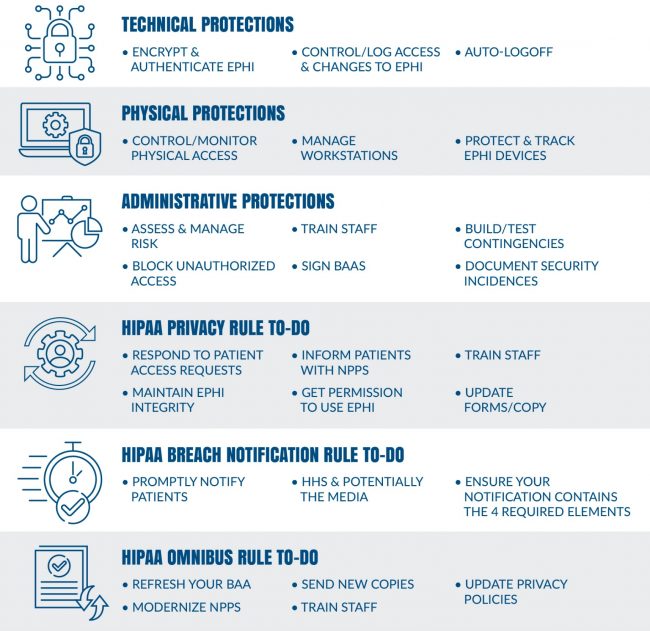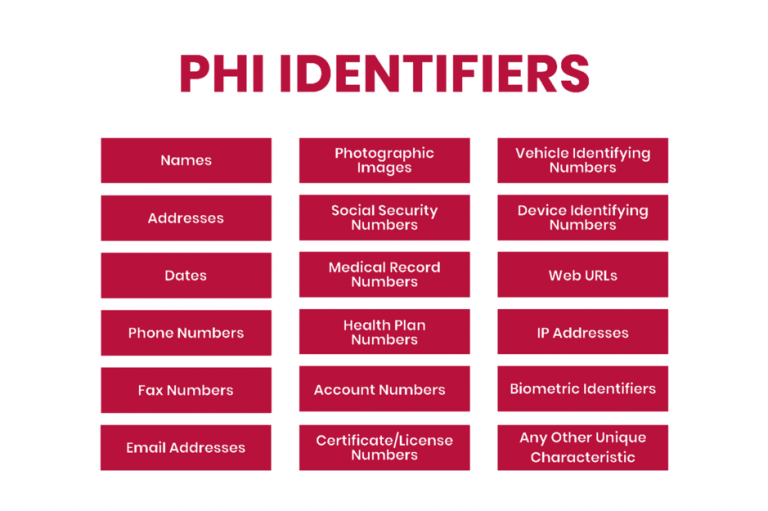
In the world of healthcare, ensuring the confidentiality, integrity, and accessibility of patient data is paramount. Regulatory compliance, specifically compliance with the Health Insurance Portability and Accountability Act (HIPAA), plays a critical role in safeguarding sensitive health information. As healthcare organizations increasingly turn to digital solutions to streamline their operations and enhance patient care, the role of software consulting in ensuring HIPAA compliance has become more significant than ever.
Software solutions have catalyzed a paradigm shift in patient care and data management, significantly enhancing efficiency, accessibility, and service delivery. However, the flip side of this digital revolution is the heightened need for robust security measures to protect sensitive health information. This is where software consulting comes into play. As a bridge between the domains of healthcare and technology, software consulting is instrumental in navigating the intricacies of HIPAA compliance.
We, at Itirra, a leading Seattle-based healthcare software development company, draw upon our extensive experience to guide you through the complex but crucial HIPAA compliance. Our aim is to assist healthcare organizations in effectively utilizing software solutions while maintaining the stringent standards of data protection stipulated by HIPAA.
Understanding HIPAA compliance
HIPAA, or the Health Insurance Portability and Accountability Act, is a US legislation introduced in 1996 to safeguard patients’ medical information and ensure privacy and security. Given the sensitivity of health data and the potential harm that can be caused by its unauthorized use or disclosure, compliance with HIPAA regulations has become a critical imperative for healthcare organizations and any entity dealing with protected health information (PHI).
At its core, HIPAA compliance entails adhering to a set of standards outlined in the HIPAA Privacy Rule and the HIPAA Security Rule. The Privacy Rule defines the standards for protecting PHI, which includes any information about health status, provision of health care, or payment for health care that can be linked to an individual. This rule applies to all forms of PHI, including oral, written, and electronic. The Security Rule, on the other hand, establishes the standards for protecting electronic PHI (ePHI) specifically, prescribing a series of administrative, physical, and technical safeguards to secure individuals’ ePHI.
Non-compliance with HIPAA can lead to severe consequences, including hefty fines and legal penalties. But the implications are not limited to financial and legal repercussions. Non-compliance can also damage a healthcare organization’s reputation and erode the trust of patients and partners.
However, understanding and maintaining HIPAA compliance is not a simple task. The requirements are complex and continually evolving to address the changing nature of healthcare practices and technology. This is where specialized expertise, such as software consulting, can prove invaluable, helping healthcare organizations navigate the complexities of HIPAA, develop compliant processes, and ensure the ongoing security of patient data.

The role of software consulting in HIPAA compliance
As the healthcare industry continues to rapidly digitize, the role of software consulting in HIPAA compliance has become increasingly significant. Software consultants bring a unique blend of technical expertise and industry knowledge to the table, helping healthcare organizations navigate the complexities of HIPAA regulations while leveraging the power of digital transformation in the following ways:
Compliance assessment and identification of vulnerabilities
Software consultants play a pivotal role in identifying and addressing potential areas of non-compliance within an organization’s technological infrastructure. They conduct thorough assessments of the existing software systems, processes, and protocols to determine their compliance status. This evaluation involves examining the security of ePHI, the robustness of data encryption methods, the effectiveness of access control mechanisms, and the safeguards in place to prevent data breaches.
Remediation of identified vulnerabilities
Beyond assessments, software consultants provide guidance on how to remediate identified vulnerabilities. This could involve the development or customization of software solutions that adhere to the requirements of the HIPAA Security Rule. These solutions are designed to enforce stringent data security measures, safeguarding ePHI from unauthorized access, alteration, deletion, and transmission.
Development and implementation of HIPAA compliance programs
Software consultants can assist in creating and implementing a comprehensive HIPAA compliance program. This might involve setting up a regular audit schedule, creating disaster recovery plans, developing training programs to enhance staff awareness about HIPAA requirements, and establishing incident response protocols.
Ongoing compliance support and guidance
Given the constant evolution of technology and changes in regulatory landscapes, software consultants ensure that healthcare organizations remain up-to-date with the latest HIPAA requirements and technological advancements. They provide ongoing support and guidance, helping organizations maintain compliance over time and adapt their strategies as needed.
In essence, software consulting plays an instrumental role in HIPAA compliance. It enables healthcare organizations to secure sensitive data, mitigate risks, and foster a culture of compliance, all while leveraging the benefits of digital innovation.
Principles for Ensuring HIPAA Compliance
The first principle in ensuring HIPAA compliance is understanding the scope of the law. HIPAA applies to a wide range of entities, including healthcare providers, insurance companies, business associates, and any other organization that has access to PHI. Understanding the extent to which HIPAA applies to an organization is critical to ensure all necessary steps towards compliance are taken.
Conducting regular risk assessments
HIPAA mandates that organizations perform regular risk assessments to identify potential vulnerabilities in the security of PHI. These assessments should be thorough, examining all areas where PHI is used or stored. They help identify potential threats and vulnerabilities and assess the likelihood and potential impact of such threats, leading to the identification of appropriate risk mitigation strategies.
Implementing robust data protection measures
One of the key requirements of HIPAA is the implementation of robust data protection measures to protect the confidentiality, integrity, and availability of PHI. This includes physical safeguards such as secure storage areas for PHI, technical safeguards like encryption and access controls, and administrative safeguards like security training programs and contingency plans.
Staff training and awareness
Regular staff training and awareness initiatives are essential for ensuring HIPAA compliance. All staff members who handle PHI should be aware of the HIPAA rules and how they apply to their roles. They should understand the importance of maintaining the confidentiality and security of PHI, and be familiar with the organization’s policies and procedures relating to HIPAA.
Developing a culture of compliance
Developing a culture of compliance is perhaps the most overarching principle in ensuring HIPAA compliance. This involves instilling a mindset where data security and privacy are prioritized at all levels of the organization, from top leadership to individual employees. A culture of compliance promotes proactive behavior, encourages the reporting of potential issues, and helps ensure that the organization’s practices evolve with changing regulations and technologies.
Adhering to these principles can provide a solid foundation for HIPAA compliance. However, due to the complexities involved, expert guidance from software consultants can prove invaluable in interpreting and applying these principles in the context of specific organizational needs and circumstances.
Best practices for HIPAA compliance in software consulting
Through a combination of principles and the following best practices, software consultants can effectively guide healthcare organizations towards HIPAA compliance. The challenge lies in customizing these practices to suit the specific requirements and contexts of different organizations, which is where the expertise of experienced consultants truly shines.
Data encryption
One of the best practices in HIPAA compliance is implementing strong data encryption. Encryption converts sensitive information into a format that can only be read or processed after being decrypted. This measure is crucial for ePHI stored in databases or transmitted over networks, reducing the risk of unauthorized access and potential breaches.
Implementing access controls
Access controls are a critical part of securing PHI. These include unique user identification, emergency access procedures, automatic logoff, and encryption and decryption procedures. It’s important to limit access to ePHI to only those individuals who require it to perform their job functions, further reducing the risk of unauthorized access.
Regular audits and monitoring
To ensure ongoing compliance, software consultants should perform regular audits and continuous monitoring of systems containing PHI. This process helps identify potential security incidents before they become significant issues and ensures that all systems and processes continue to comply with HIPAA regulations.

Implementing a secure development lifecycle
Incorporating security from the onset of the software development process helps identify and mitigate potential security risks. This approach, known as a Secure Development Lifecycle (SDLC), involves integrating security considerations into each phase of the development process, from initial design and development to deployment and maintenance.
Designing for privacy
A vital best practice is designing software with privacy in mind, often referred to as ‘Privacy by Design.’ This includes strategies such as data minimization, where the amount of PHI collected, used, and stored is minimized, and purpose limitation, where the data is only used for the purpose it was collected.
Developing a breach response plan
Despite best efforts, breaches can still occur. A breach response plan outlines the steps an organization will take in the event of a breach, including identifying and containing the breach, notifying affected individuals and relevant authorities, and taking steps to prevent future breaches.
Conclusion
HIPAA compliance is more than just a regulatory obligation — it’s an ethical commitment to the safeguarding of patient data, a reinforcement of trust, and an assurance of quality service in healthcare provision. However, the complexities of HIPAA and the intricacies of software systems can make compliance a challenging endeavor.
Software consulting emerges as a powerful ally in this context, bridging the gap between regulatory requirements and technological solutions. With their extensive knowledge and specialized skill sets, software consultants play a pivotal role in assessing vulnerabilities, developing customized solutions, and fostering a culture of compliance within organizations.
While understanding HIPAA’s principles and adhering to best practices lays the groundwork for compliance, it’s the application of these principles through the lens of professional expertise that ensures their effectiveness. That’s where companies like Itirra, with a strong track record in healthcare software consulting, can make a significant impact. By guiding organizations through the complexities of HIPAA, Itirra helps them uphold their commitment to patient trust and data security, turning regulatory compliance into a strategic advantage in the digital healthcare landscape.

